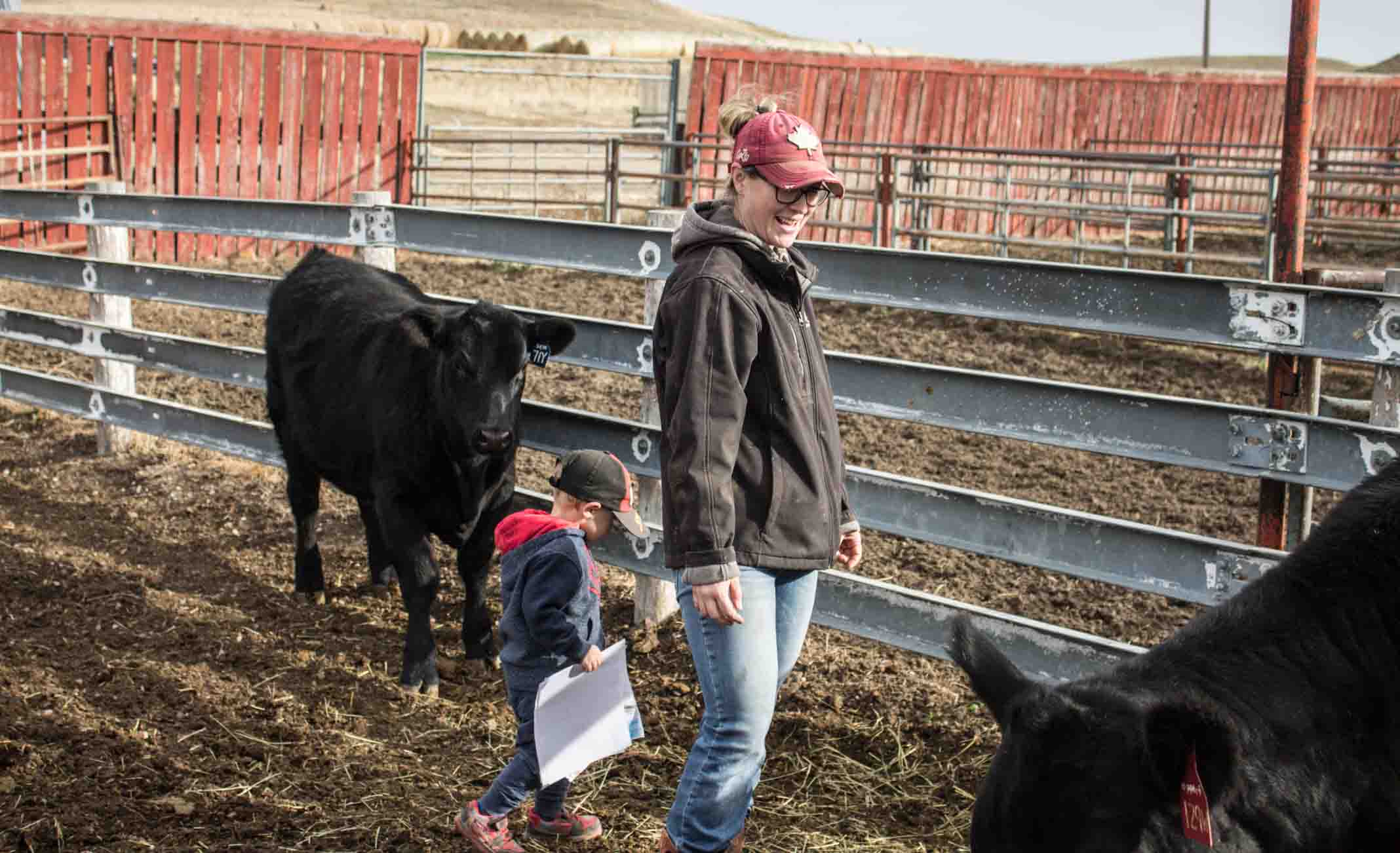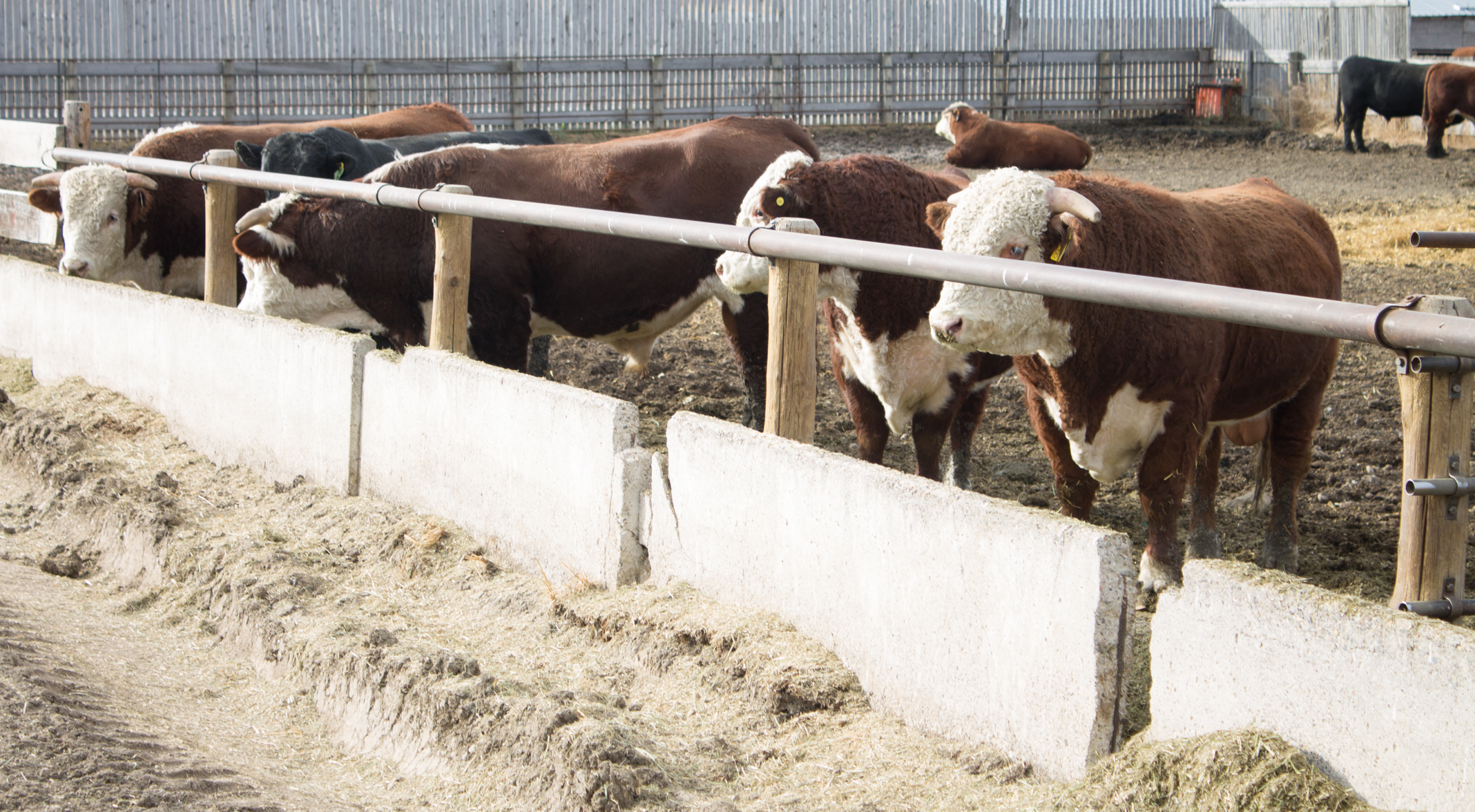The pressures of farming, including unpredictable weather, financial stress and an around-the-clock workload, have caused Canadian farmers to experience mental health issues.
Noorin Chatur-Muhammad
Kicker

Brad and Veronica Doenz work long hours on their Warner farm, often in isolation and with little outside help.
Their situation is not unique. The pressures of farming, including unpredictable weather, financial stress and an around-the-clock workload, have caused many Canadian farmers to experience mental health issues.
Doenz, who was prescribed antidepressants three weeks ago, is no stranger to mental illness.
“I get such bad anxiety, not just with the money aspect of it, but also the lack of help and being there for my own family.”
You could hear the stress in the tone of her voice, as she spoke about the challenges of being a wife and mother, while simultaneously helping her husband run a successful farming operation.
“My kids can’t do some things because we just don’t have time to take them, because both Brad and I are working and the kids have to come with us,” said Doenz.
Doenz is aware that she is an exception among her peers when it comes to openly speaking about mental health. She attributes this, at least in part, to being a woman.
“I find women more accepting of finding help,” said Doenz. “Similar to how women will go to a doctor if they are sick or need medical help. However, men are different. I mean there are man colds, and then there is mental health. I can’t think of any farmers or ranchers that would seek medical attention unless they were really bad off. I don’t know if it’s a pride thing or their upbringing, but it’s a sign of strength. Farming is so far behind what mainstream culture is accepting of. I just think it’s the inheritance of that mindset.”
A University of Guelph study published in 2016, found that 40 per cent of agricultural producers felt uneasy about seeking professional services due to the stigma associated with discussing mental health.
The Farm Stress Line, which was established by the Ministry of Agriculture in 1989, has been looking for ways to break the stigma that farmers have with accessing mental health services.
Part of the problem is that farmers do not know what services are available or how to access them, said John McFadyen, executive director of mobile crisis services.
Members of Parliament have taken note of mental health concerns within the farming community. The House of Commons agriculture committee is currently inviting farmers and other stakeholders to come forward and share their stories.
McFadyen had the opportunity to present to the committee last Tuesday.
“More research is necessary (so the government can) decide how best to spend the dollars and certainly how to provide services due to the isolation,” McFadyen told the committee. “These services may be through telephone counselling, or internet technologies that we have these days, so those who need it don’t have to travel and can access more timely help.”

Back at the ranch, Doenz points out two young Herefords that her older son will be showing at a competition this weekend.
When asked about her hopes regarding the outcome of the House of Commons agriculture meetings, Doenz said, “It’s hard to feel optimistic, but I sure hope something changes.”
Farmers needing support can reach out to the Farm Stress Line at 1-800-667-4442. Crisis staff are available 24 hours a day, seven days a week.




Be the first to comment